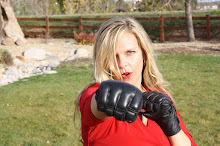Hey Tracee Jones! Tracee Jones! Tracee Jones!<p>I had been married for maybe a year when some guy I knew from high school was trying to get my attention in the hall at my college.
I remember this moment vividly because it's when I realized my identity was no longer Tracee Sue Jones. It had become Tracee Simons. I had taken my husband's name and practiced my married name signature like every young girl before me. At first I had trouble answering to Simons, but somehow within a year, my identity had altered itself to someone that no longer answered to Tracee Jones.
I was a child-bride and experienced marriage and divorce by the time I was 19. Still in college, I looked at the vast expanse of the future ahead of me and I was pretty sure I'd remarry. I had the added complication of having a brother-in-law named Tracy Simmons and our credit was getting mixed up. He really wanted to not share a name with me. The feeling was mutual.
As women, I'm sure most of you can see my dilemma. You know, if you've done it, that changing your name alters your identity in some way. Perhaps the way it alters is different in different situations, but how you identify who you are is integrally altered.
I decided altering my identity was a bad idea for my internal sense of self. I wanted to develop that internal sense of self and remain true to it, instead of altering it with my relationships.
I couldn't find a way back to Jones. It's just not someone I was anymore. I had no desire to go back to it. I hear many divorced women, especially if they have children or have spent a significant amount of time using their married name, say they just couldn't go back to maiden either.
After about 2 years of thought and experimentation I decided to drop both last names and become Tracee Sioux and stay Tracee Sioux through whatever marital status I was in. I felt changing the spelling would make it more sur-name-ish .
Legally, anyone can change their name to virtually anything (some exceptions apply) with a simple court proceeding.
Changing our names with our marital status is a uniquely female experience and I wish there was a simple solution. There isn't.
I do think there is a negative effect in our collective conscience as women if we change our names over and over through our lives. The inconsistent identity with self has negative consequences.
However, keeping the maiden name may come with as much baggage as taking a married one. There are some valid reasons to want to break away from your childhood family identity. There are some valid reasons for wanting to keep a married name after a divorce. There are valid reasons to invent your own name.
In the last chapter of Women & Money: Owning the Power to Control Your Destiny,Suze Orman shares that she used to be named "Susie" and, like me, she wanted to take control of her sense of self and identity.
She encourages women to say your name, whether by marriage or birth or divorce, decide who you are and then be proud of it. There is power in saying your name with pride, whatever full name you choose, and the goal of her book is to help us live a more powerful life.
I, for one, got a lot out of it and thoroughly enjoyed her perspective on women's dysfunctional relationship with money.






3 comments:
Great post and fascinating story, I agree with so much of what you've said here. You're very much not an anonymous blogger and I found that thought-provoking when reading this post about your deep sense of identity in your name. Good for you!
What a great post! I have read your name story before, but this one gives another thought process about taking control of destiny.
Thanks.
you are right--that is complicated, but definately interesting. Surnames are a wonderful tool of the patriarchy, but it is nearly impossible to get around them. I, for one, will be keeping my "maiden" name if I ever get married: Kacie Sioux Versaci is just too good a name to change! And when it comes to kids, well, my future partner and I will burn that bridge when we come to it.
What a great post. I loved it!!
Post a Comment